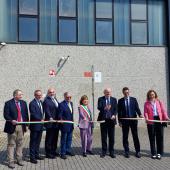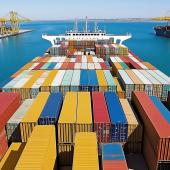Sustainability. The Davines point of view
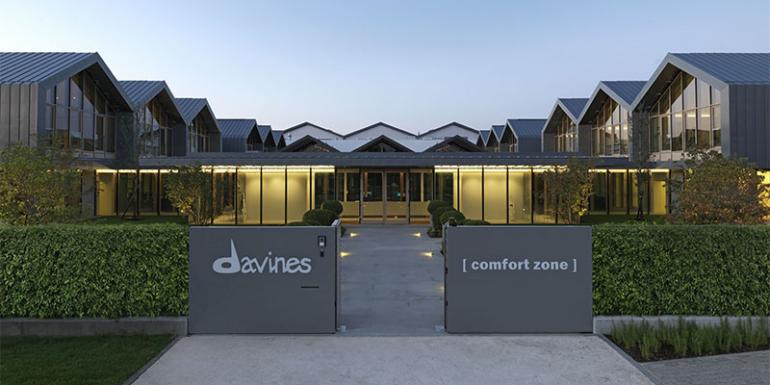
Sustainability as a holistic approach that touches the organization, the product, the customer and infects the partners. Interview with Sonia Ziveri, Chief Sustainability Officer of Davines SpA.
M. Costanza Candi, Luciana Guidotti
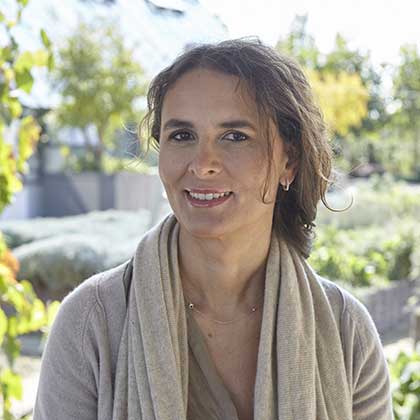
A B Corp with a long history of attention to sustainability, Davines is a family company, market leader, that has made green its flag, painting every aspect of the company’s actions and life green.
From the headquarters in Parma (“the Village”) to the kilometroverdeparma, from local initiatives to the Research Charter for Packaging, there is no aspect of the company’s strategy that is not permeated with values linked to sustainability. A strategy that is recognized by market performance and by the ecosystem of companies that Davines is driving along its path. Sonia Ziveri, Chief Sustainability Officer of this “creator of the good life” - as Davines defines itself - as well as producer and distributor of trichological products and beauty creams, tells us about it.

The Davines Village, inaugurated in 2018 in Parma, was designed by Matteo Thun to respond to the most stringent demand for sustainability. Covering 77,000 square meters, 11,000 of which are offices and a production plant, it is equipped with a botanical garden, co-generation systems and responds to green logic in the company’s daily life: from the use of recyclable materials to the reduction of disposable plastic and 100% of energy produced from renewable source.
Sustainability is a topic whose value is now fully assumed by public opinion: how would you define the relationship between the increased sensitivity of consumers and the role of innovation played by large players like your company?
In general, we believe that the role of companies in the path of innovation is central. Making disruptive choices towards increasing sustainability sets a course that goes beyond business as usual and that, indirectly, pushes even the largest companies towards virtuous behavior. Davines is a medium-sized company, but through its actions it manages to influence the big players, creating a model from which we cannot escape. It’s a healthy dynamic that goes towards protecting the consumer, because it’s up to the responsibility of each one of us, companies in the first place, to act as a driver, using comparison and favoring the choices that allow us to continue to survive in our ecosystem. Our current lifestyle and consumption of the environment around us is not sustainable in the long run.
Over the years, we have pioneered a total approach to sustainability, which is in the company’s DNA, with a journey that began in 2005 with an ethical charter. The people of Davines confronted a philosopher and defined the founding values of their work, which became the basis for our choices. These values then allowed for the construction of the sustainable beauty manifesto, which defined the sustainability trajectories for a company that wants to make beauty its world of reference. Since then, we started to work on many project tables, driven by the passion for sustainability, until, in 2016, after a work of internal organization and the definition of measurement methods, we obtained the B Corp certification, very important for the company but also for the community, because it does not involve only one aspect, but aims at a holistic approach, which guarantees sustainability in all areas, under the social, environmental and economic profile.
Another difficult issue in the management of governance, which Davines is working on, is the creation of a B Corp Beauty Coalition, of which it is the leader together with Gruppo Natura and Dr Brenner, a Californian brand that makes sustainability the core of its business and a reference point for the sector. The objective is to define a modus operandi that supports member companies in developing advanced packaging, innovating the supply chain of ingredients, and strengthening the sustainability of the supply chain as a whole.
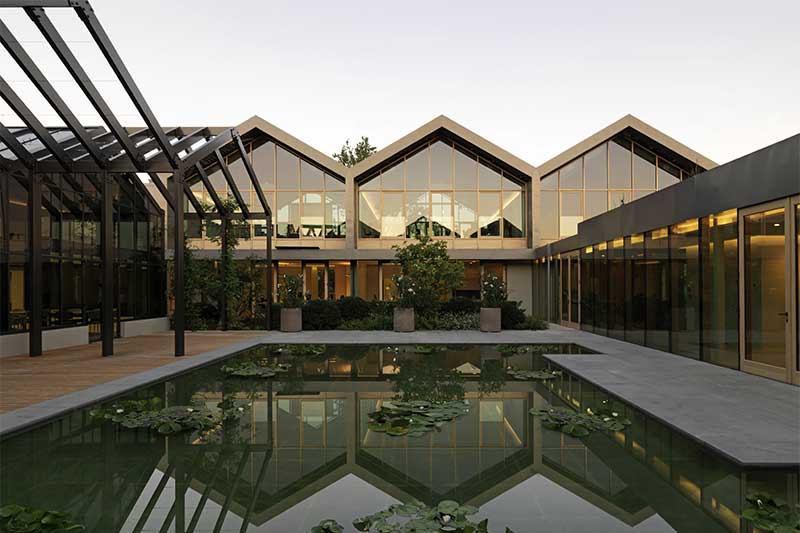
A proactive action, which has become almost a mission for Davines...
We have put in place a series of initiatives in the area that are driving new adhesions to the model, with the goal of international recognition of the B Corp concept.
The approach, in fact, includes aspects that go beyond purely “scientific” data, such as the impact that the company has on the territory, on the sustainability of the supply chain with the direct involvement of suppliers in the process. Stakeholders are also under observation, part of the community that, for various reasons, revolves around the company, developing a real contamination. Parma in this sense is an emblematic case, with a very high number of B Corps that have been largely influenced by the visionary choices of Davines, involving, among other things, suppliers of packaging and other materials, nine of which are themselves B Corps. A virtuous contamination that reinforces the message and its circulation on an exclusive certification system, which has about 120 companies in Italy and 4000 worldwide.
In this path that has the search for beauty as its fixed point, how much does the drive for innovation play a role?
Davines really does play the role of a “driver of innovation” that also pushes the market and competitors in this direction, precisely because of our total adherence to the green values that distinguish us, starting with communication, continuing with the construction of an absolutely innovative company headquarters, the product image, the choice of materials in the process and in packaging. We are an example of sustainability for professional cosmetics, in a context where many people talk, but not everyone does a codified and certified work in this sense. We believe that it is essential to constantly improve, because sustainability is a never-ending path that requires commitment and responsibility. In fact, it is the individual choices of each of us that push the company towards tangible results, in a measurable path step by step according to B Corp protocols, which allow to map the impact of actions.
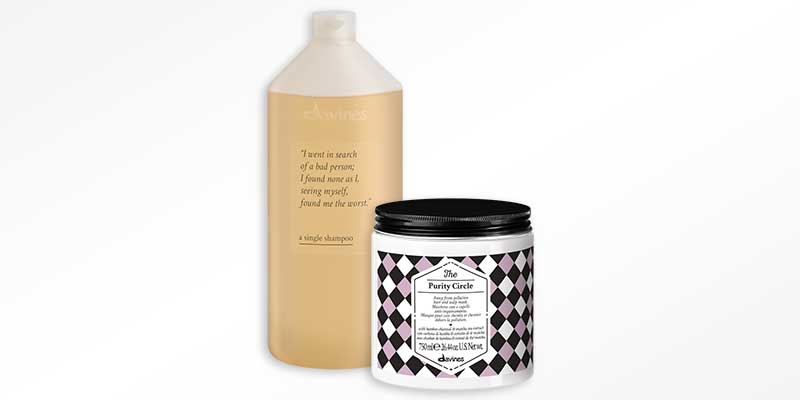
Sustainability of packaging means research into new materials, the study of innovative and “responsible” design, ad hoc communication capable of underlining the characteristics of an evolved and ethical packaging (made with less waste of resources, recyclable, etc...). A useful weapon for marketing?
We work in the Village, inaugurated 3 years ago, on July 2, 2018, which is a glass house. our offices are made of glass, not walls. This indicates the importance, not only formal, that transaprency plays for the people and the group. In terms of packaging, we continue to work on research with our Packaging R&D Department, which works with the marketing department in order to identify better solution with a lower impact. We aim at circularity, guided by a Packaging Research Charter for product development where, first of all, we aim at lightening packaging, reducing primary packaging to the essential, eliminating, decreasing and rationalizing secondary packaging and aiming as much as possible to reduce the consumption of fossil fuels... choices that have earned us several CONAI awards.
We prefer the use of recycled materials for our packaging: in 2020, we have reached a percentage of 60% of packaging from recycled material on the total material purchased for primary, secondary and tertiary packaging. In particular, we use a very high percentage of recycled paper and cardboard (over 90%) and since 2017 we have been committed to replacing virgin plastic with post-consumer recycled or bio-based plastic derived from sugarcane... materials, the latter of which have exceeded 55% of the total weight of plastic purchased for our packaging in 2020. For several years we have been carrying out LCA analyses on all new products, to analyze their lifecycle and identify the best solution in terms of impact and functionality. Often the answer is polymers, with post-consumer recycled materials prevailing. But as we know, it is not the material, but the use that is made of it, that is the problem: the theme of individual responsibility returns.
In order to guide towards knowledge and informed choices, we have created a Sustainable Packaging Dossier for use by customers and sales force, where we provide details that are not taken for granted on our policies, on the meaning of certain choices: think of the mono-material packaging-label system to promote recyclability.
We also provide indications on how to create a compact packaging, recovering more than 20% of the volume and reducing the carbon footprint, but we also provide advice based on the reduction of consumption, such as, for example, using the product up to the last drop. All this work is certainly useful for marketing, but I would like to stress that our brand is driven by values, much more than by the opportunity of the moment.
For us, sustainability is a shared choice: this concept is significantly embodied in a special group of people, whom we call “sustainable development activators” who work in every corporate function and, in collaboration with managers, coordinate to support the sustainability team and achieve impactful and measurable results.
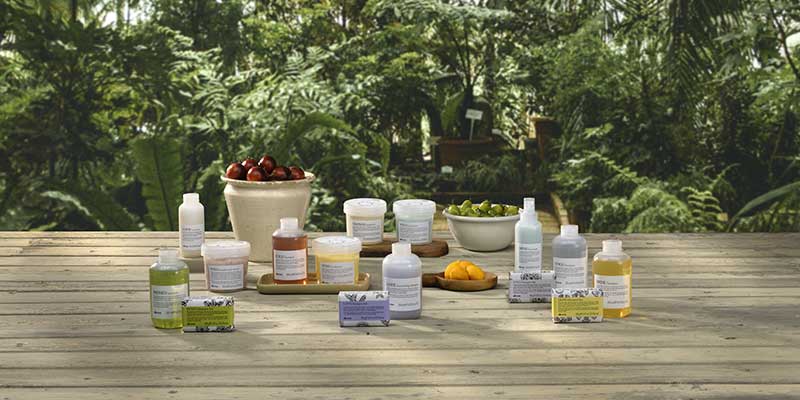
What are the repercussions on logistics, shelf display and labeling (which, in the final analysis, is the most immediate means of establishing contact with the consumer)? Can you give us your point of view on this new deal?
The rationalization of the pack makes it possible to mitigate the impact on the environment, the use of virgin and recycled material, thus reducing the carbon footprint. This has an impact on transportation, thus lowering emissions. As for consumer education, we are working to reach out to customers, providing them with clear, transparent and understandable information. Customers must be educated: we are dealing with beauty professionals, hairdressers and beauticians, who become our ambassadors to all intents and purposes. But they need to be trained, supported with “talking labels,” using, for example, QR codes and other forms of augmented reality, which allow for immediate information. We are also working with Cosmetica Italia, the trade association, with which we are trying to define the concept of green and sustainable products. It would be very important to have a certification that measures the ecological footprint of the product, an issue on which the European Commission is working with the Product Environmental Footprint. We are therefore studying clear, transparent labels, easy to read, that are fully informative and a vehicle to promote our values.
Sustainability of packaging and product: a principle that, in addition to protecting the environment, extends to respect for the territory, sociality and safety, closing a virtuous circle. What is your vision of new lifestyles and consumption?
It’s clear that Davines works as a system on every possible occasion. Our President, Davide Bollati, is very active in the city and, with Parma Io Ci Sto, has contributed to the dream of Parma as Capital of Culture, pushing for the candidacy of Green Capital 2022. A goal that has been missed, for now, but which has shown how companies, the administration and other stakeholders can work together for the common good. Working with other companies, Davide Bollati launched the idea of kilometroverdeparma, which then became a Consortium, under the coordination of Maria Paola Chiesi of Chiesi Farmaceutici, which is also a B Corp. This group aims to create a tree barrier that will curb fine dust and reduce the impact of the highway along the stretch that runs in front of the companies. An initiative that has already set the standard, leading to the adhesion of other companies, which have created new planting areas, compared to the original kilometroverdeparma.
Also by Davide Bollati is the idea of the Alliance for Carbon Neutrality of the Province of Parma. In this case, the Municipality and Province of Parma, I Parchi del Ducato and the Emilia-Romagna Region join forces with the University of Parma and Unione Industriale to measure emissions and define a reduction strategy, carrying out offsetting actions.
A philosophy based on teamwork, which also includes the 6 countries where Davines has branches: London, Paris, New York, Deventer in the Netherlands, Hong Kong and Mexico City, where the involvement in the territory is strong even where there are only representatives: the common key is the sharing of values and approach.














